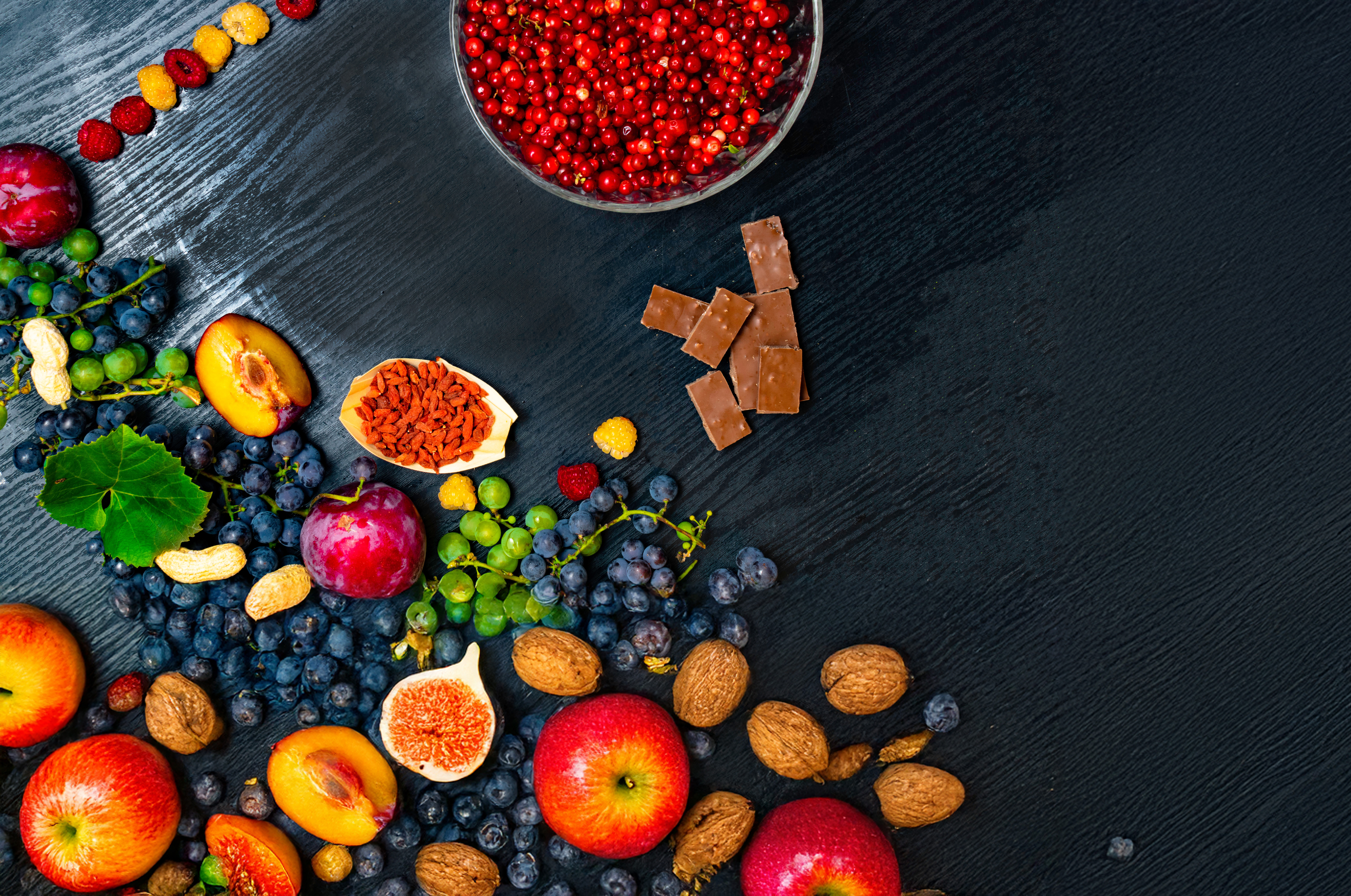Currently, longevity is a popular buzzword and goal for brain health and overall vitality. Those seeking eternal health sometimes go to extremes to achieve a longer life and even do their best to ‘reverse’ their biological age. Fortunately, there are effective strategies that research is unveiling that are easily incorporated into daily life and have audacious effects particularly on the brain.
Polyphenols have gained attention for their potency and anti-aging effects. They are micronutrients ubiquitous in the food supply, including plants and, to a lesser degree, animal sources. Polyphenols are structurally classified based on the number of phenol rings and their binding to these rings. They include phenolic acids, flavonoids, stilbenes, and ligans.
Polyphenols have been found to be beneficial in combating aging by affecting important cellular processes, including metabolism, energy balance, redox equilibrium, proteostasis, cell signaling, inflammatory response, and oxidative stress and gene-expression control. They are well known for their antioxidant properties, which counteract the negative effects of aging and cellular damage caused by the aging process. Polyphenols may achieve this by counteracting, at the molecular level, the signaling pathways responsible for the chain reactions involved in aging.
Oxidative stress is a significant factor in the aging and neurodegenerative processes within the brain. Polyphenols, by virtue of their ability to scavenge free radicals, can help alleviate this damage and maintain the integrity of brain cells.
The significance of food polyphenols in safeguarding the aging brain is contingent upon their capacity to permeate the blood-brain barrier, a highly selective barrier that restricts the entry of metabolites, nutrients, and drugs into the brain.
Inflammation is another characteristic of brain aging. It is also implicated in the pathogenesis of diseases that involve the brain, e.g., Parkinson’s and Alzheimer’s Disease. Polyphenols may have the potent capacity to counter the effects of neuroinflammation. These anti-inflammatory effects may help to create a healthier environment for the brain.
Polyphenols are also widely recognized for their ability to stimulate brain plasticity, which encompasses the brain’s capability to adapt and reorganize itself by establishing novel neural connections. This process may be facilitated by the modulation of gut microbiota and microbial metabolites, which has been shown to reduce cognitive decline.
Compounds that promote blood circulation in the brain have been identified and reported in various studies. It has been demonstrated that polyphenols, specifically, can enhance cerebrovascular health and lead to the development of functional foods targeted towards improving brain health by improving vascular health. Maintaining cerebral blood flow (CBF) is essential for delivering a constant supply of oxygen and glucose, as well as removing waste products. The potential for improving brain function through increasing blood flow, and the prospect of increasing CBF through the consumption of dietary polyphenols, is highly promising.
Be mindful of not consuming foods that counteract the polyphenol activity. Foods that contain an enzyme polyphenol oxidase will decrease the bioavailability of the polyphenols. For example, bananas and beet greens that are high in the compound polyphenol oxidase and are nutritional powerhouses on their own but ingested with e.g. berries (as mentioned high in polyphenols), may lower their flavanols.
In conclusion, polyphenols present an encouraging means of protecting against age-related brain health decline. Their potent antioxidant, anti-inflammatory, and neuroprotective properties, as well as their capacity to positively influence brain plasticity and cerebrovascular health, make them valuable allies in the battle against cognitive decline. By incorporating a diet rich in polyphenol-containing food, and combining them mindfully, it may be possible to preserve brain health and maintain cognitive function even as one ages. As research in this field continues to expand, polyphenols may play an increasingly significant role in strategies to promote healthy aging and possibly stave off neurodegenerative diseases.
Top foods that are high in polyphenols include:
- Apples
- Berries
- Cocoa
- Coffee
- Dark Chocolate
- Grapes
- Green Tea
- Nuts
- Olives and Olive Oil
- Onions
- Pomegranates
- Soybeans and Soy Products
- Spices and Herbs
You may also like: Dietary Nitrates for Better Heart Health and Enhanced Performance

Read This Story in Our 2024 Fall Fitness Issue
IMPACT Magazine Fall Fitness Issue 2024 featuring Canadian figure skating icon Elladj Baldé, Paralympic shot putter Greg Stewart, Indigenous rights trail running Anita Cardinal. Adventure travel with some amazing winter getaways, strengthen your back and hips, find the art of joyful movement, Inclusivity in the fitness industry and so much more!
















